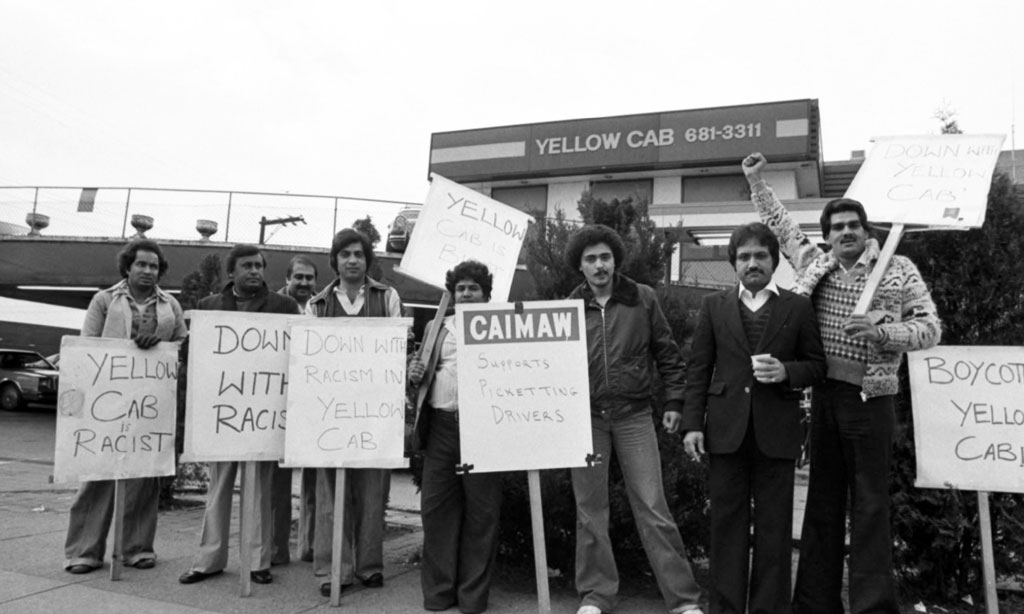
The industrial changes in British Columbia that began in the 1970s pushed many South Asian Canadians out of the lumber industry. Many of these displaced workers, along with newly arrived immigrants, joined the growing transportation industry, becoming owner-operators of their own long-haul trucks or taxi cabs.
Many felt this entrepreneurial work provided independence, but also it also presented opportunities for exploitation. The traditional trade union model of “shop-floor organizing” did not seem to be an option for these workers.
The taxi industry was an example where racism and the organization of work intersected. Harinder Mahil recalls an incident in 1980 at Yellow Cabs where the BC Organization to Fight Racism became involved.
“There had been some attacks against taxi drivers. Somebody would hire a taxi and then say ‘I don’t want to take this taxi because [the driver] is Indo-Canadian or a person of colour’. The taxi company would dispatch someone else at the request of the passenger. So it had become an issue because taxi drivers had been attacked. One of the [taxi] companies didn’t want Indo-Canadians to be shareholders. Basically they were selling shares in the company. You were buying a job for yourself. You’re putting out a whole bunch of money so you could own a taxi and you could drive it. Putting the two issues together taxi drivers contacted us to help them. And we did. Highlighting this issue, educating the public that this is going on. And once it becomes public and it’s out in the media and then the company would shy away from discriminating because then, you know, people will say, you know, that’s the company that doesn’t allow Indo-Canadian shareholders, that’s the company that doesn’t allow Indo-Canadians to be a driver. So it was part of a public education campaign.” [1]
- Harinder Mahil interview. ↵
